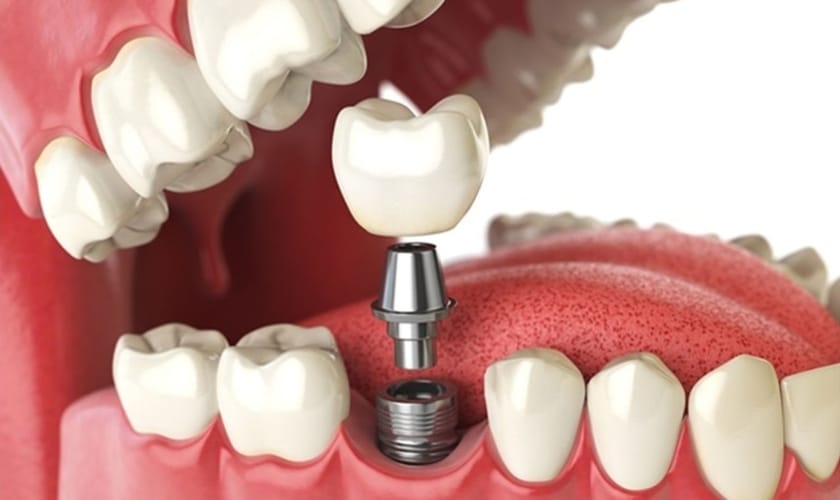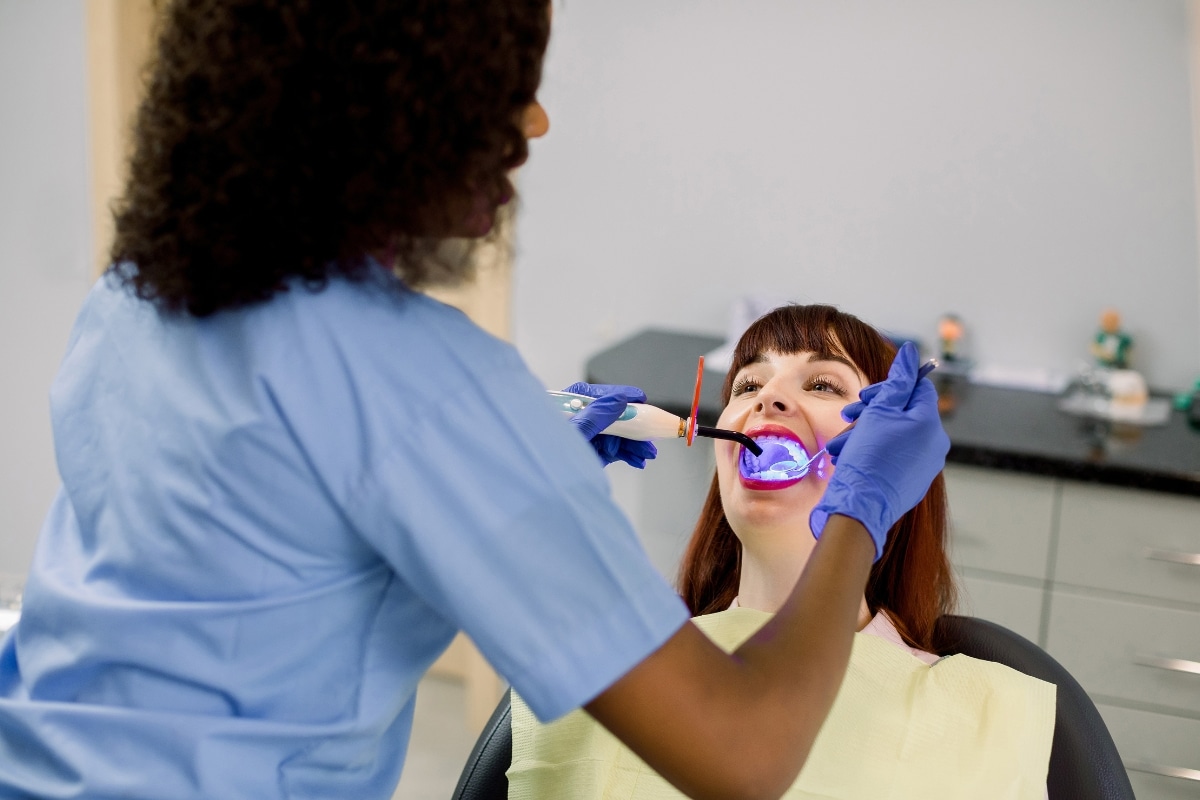Maintaining Dental Implants: Tips for Long-Lasting Results in Havertown, PA

Welcome to a comprehensive guide on sustaining the longevity of your dental implants in Havertown, PA. Dental implants offer a transformative solution for missing teeth, providing not just a beautiful smile but also functional oral health. However, proper maintenance is essential to ensure these implants last a lifetime. In this guide, we will delve into crucial tips and best practices to preserve the integrity and longevity of your dental implants, empowering you with the knowledge needed to enjoy a confident smile and optimal oral well-being for years to come in Havertown, PA.
Understanding Dental Implants
1. Definition and Composition:
Dental implants are artificial tooth roots made of biocompatible materials, typically titanium. These implants are surgically placed into the jawbone, where they integrate through a process called osseointegration. Osseointegration allows the implant to fuse with the jawbone, providing a stable and durable foundation for a replacement tooth or dental crown. The visible part of the implant is a connector called an abutment, which attaches the artificial tooth. Dental implants replicate the structure and function of natural teeth, offering a secure and permanent solution for replacing missing teeth.
2. Implantation Process and Longevity:
The implantation process involves several stages. First, a thorough evaluation of the patient’s dental health is conducted to determine candidacy. If suitable, the dental implant is surgically placed into the jawbone. Over the next few months, the implant undergoes osseointegration, during which it bonds with the bone. This integration is crucial for the longevity of the implant, providing stability and preventing bone loss. After successful osseointegration, an abutment is placed, and a custom-made crown is attached, completing the implant. Proper care and maintenance, including regular oral hygiene and professional check-ups, significantly contribute to the longevity of dental implants.
3. Advantages Over Traditional Solutions:
Dental implants offer several advantages over traditional tooth replacement options such as dentures or bridges. Unlike bridges, dental implants do not rely on adjacent teeth for support and do not require alteration of healthy teeth. This helps preserve the natural tooth structure. Furthermore, implants provide stability and functionality similar to natural teeth, allowing for normal chewing and speaking. They also prevent bone loss by stimulating the jawbone, maintaining facial structure. Dental implants stand as a long-term solution, often lasting a lifetime with proper care, making them a superior choice for individuals seeking a permanent and reliable tooth replacement option.
Importance of Proper Maintenance for Dental Implants
1. Longevity and Durability:
Proper maintenance of dental implants is vital for ensuring their longevity and durability. Regular oral hygiene routines, including daily brushing and flossing, help prevent plaque and bacteria buildup around the implant and gum line. Maintaining a clean oral environment around the implant significantly reduces the risk of infections, peri-implantitis, and other complications. By preventing these issues, the implant remains structurally sound and functional, extending its lifespan and minimizing the need for costly repairs or replacements.
2. Oral Health and General Well-being:
Dental implants contribute to overall oral health by providing stability and support to neighboring teeth. Proper maintenance of dental implants, along with routine dental check-ups, allows dentists to monitor the health of the implant and the surrounding oral tissues. Early detection of any potential issues enables timely intervention and prevents complications that could affect oral health and overall well-being. Maintaining oral health through proper implant care also contributes to improved confidence, aesthetics, and quality of life.
3. Financial Considerations:
Investing in the maintenance of dental implants can save significant costs in the long run. Neglecting proper care and maintenance may lead to complications, such as infections or bone loss, that could require corrective treatments or even implant replacement. These procedures can be costly and may not be covered by insurance. On the other hand, consistent maintenance, which includes regular dental check-ups, cleanings, and adherence to recommended oral hygiene practices, helps identify potential issues early, preventing major problems and the associated financial burden. Proper maintenance thus serves as a wise investment in preserving both oral health and financial resources.
Tips for Effective Maintenance of Dental Implants
A. Daily Oral Hygiene Routine for Dental Implant Care:
1. Brushing and Flossing Techniques:
Brush your teeth at least twice a day using a soft-bristled toothbrush. Gently brush around the implant area using circular motions to remove plaque and food particles.
Floss daily to clean between teeth and around the implant. Use a floss threader or interdental brushes to access hard-to-reach areas around the implant and ensure thorough cleaning.
2. Recommended Oral Care Products:
Use a non-abrasive, fluoride toothpaste and a soft-bristled toothbrush to avoid damaging the implant or irritating the gums.
Consider using an antimicrobial mouthwash recommended by your dentist to reduce bacteria and maintain a healthy oral environment around the implant.
B. Dietary Recommendations to Preserve Dental Implants:
1. Foods to Avoid:
Minimize consumption of sticky, hard, or excessively chewy foods that can exert undue pressure on the implant and potentially damage it.
Avoid sugary and acidic foods and beverages that can contribute to plaque buildup and increase the risk of gum disease, which can affect the implant’s stability.
2. Foods that Promote Oral Health:
Include a balanced diet rich in fruits, vegetables, lean proteins, and low-fat dairy, promoting overall oral health and supporting the implant’s longevity.
Increase your intake of foods high in calcium and vitamin D, essential for bone health and implant stability.
C. Habits and Lifestyle Adjustments for Long-Lasting Results:
1. Avoiding Smoking and Excessive Alcohol Consumption:
Quit smoking as it can impair healing, weaken the immune system, and increase the risk of implant failure.
Limit alcohol intake, as excessive consumption can lead to dehydration, reduced saliva production, and a higher susceptibility to gum disease.
2. Managing Stress and Its Impact on Oral Health:
Implement stress management techniques such as regular exercise, deep breathing, yoga, or mindfulness to reduce stress levels.
Stress can contribute to teeth grinding (bruxism), which can put pressure on implants. Consider a nightguard if you grind your teeth during sleep to protect both natural teeth and implants.
By following these maintenance tips diligently, individuals can ensure the longevity and success of their dental implants, promoting a healthy and functional smile for years to come.
Follow-up Care and Professional Assistance for Dental Implants
1. Regular Dental Check-ups:
Schedule regular check-ups with your dentist as part of ongoing follow-up care for dental implants. Typically, these should be done every six months or as recommended by your dental professional.
During these check-ups, your dentist will examine the condition of the implant, the surrounding gum tissue, and overall oral health. X-rays may be taken to ensure the implant is securely anchored and there are no signs of complications.
2. Professional Cleanings:
Regular professional cleanings by a dental hygienist are crucial for maintaining dental implants. Professional cleanings help remove plaque, tartar, and bacteria from hard-to-reach areas around the implant and gum line.
The hygienist will use specialized instruments to clean and polish the implant and ensure the surrounding tissues are healthy.
3. Prompt Reporting of Issues:
If you experience any pain, discomfort, swelling, or notice any changes around the implant site, it’s essential to contact your dentist promptly.
Early detection and intervention are key to preventing potential complications. Your dentist will conduct a thorough examination and recommend appropriate treatment to address any concerns and maintain the integrity of the implant.
Regular follow-up care and seeking professional assistance as needed will help ensure the long-term success and functionality of your dental implants. It’s important to maintain a collaborative relationship with your dental team to address any questions, concerns, or issues that may arise during the lifespan of your dental implants.
Thereby, diligent maintenance and regular professional care are paramount for preserving the longevity and effectiveness of dental implants. Routine check-ups, professional cleanings, and proactive reporting of any concerns ensure the implant’s stability and overall oral health. Adhering to proper oral hygiene practices, dietary guidelines, and lifestyle adjustments further contribute to successful implant maintenance. By embracing these essential steps and seeking professional assistance when needed, individuals can enjoy a lasting, confident smile, highlighting the significance of comprehensive care in maintaining dental implants and overall oral well-being for years to come.
Recent Posts

Why Won’t My Teeth Stay White? Dr. Maconi on Maintenance for Havertown Residents

What Happens if You Delay Filling a Cavity? Dr. Maconi on Preventing Root Canals

What Home Care Tips Can Help Relieve TMD Discomfort in Havertown?

Minimizing Sensitivity: Why Professional Teeth Whitening Treatment is Safer Than DIY Kits


